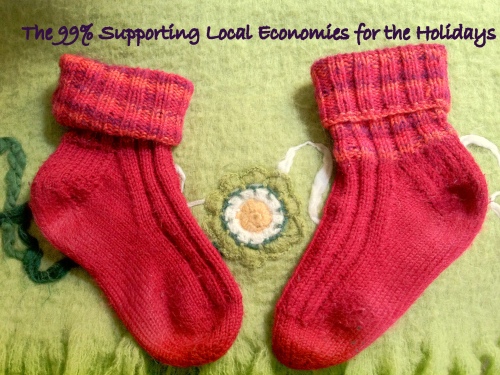
The 25 Most Important Things To Pass On To My Children and Grandchildren:
1. Be honest and kind with yourself and others. You will save a lot of pain and suffering while attracting more honesty and kindness into your life.
2. Exercise often and as aerobically as you can because 4-6 days of exercise will:
- Help you sleep more soundly
- Keep your immune system strong, thereby reducing sick days and health care costs
- Prevent injuries
- Increase your memory and learning capacity
- Release stress from your body so it won’t impact your health
- Keep you fit and healthy and toned
- Increase your options in life and recreation with a working body
- Decrease anger
- Balance your hormones and best of all
- It’s completely free if you need it to be!
3. Eat real food, especially veggies, legumes and whole grains and eat everything else in moderation. Remember that children’s tastes are developed by what is in the house and what they eat and drink in the first few years. Each food is designed perfectly balanced as nature intended to nourish our bodies. Each step from food’s original form is substandard and less nourishing for our bodies. Our bodies are our vehicles for everything we do and want to do in life so they deserve the best!
4. Develop an appreciation for reading because once you can read, you have the entire world and its history and cultures and fields of study at your fingertips.
5. Education is the key to giving yourself the best chance in life but you also have to give your best to get the full benefits. This means sacrificing personal time now, which you will get back later because then you won’t have to work as hard as a person without an education. Education also means experience. Make an effort to travel out of your home country to understand a little about how the rest of the world operates from direct experience, not heresay. Traveling is some of the most valuable education that you can experience.
6. Do at least 1 thing very well in your life! Devote enough time, even before you are an adult, to become an expert at something! When you are an expert at something, you will always have this expertise to fall back on, even if you don’t decide to make it a career.
7. Forgive yourself and others for anything in the past. It does not serve you to carry the weights of blame or regret around. Not only do they weigh you down, they can also make you physically ill. You will be closer to realizing your dreams and personal well-being when you learn to let go.
8. Visualize yourself doing what you dream to do and remind yourself of this vision frequently! Do not let others dictate your future or change your dreams. A delay or detour does not mean destruction; it may just mean a lesson you need to learn before you are prepared to soar!
9. Start small. Make small changes in yourself before uprooting everyone and your own life. Big changes = big risks. Each time you start over it costs in more ways than one. A person can never get ahead by starting over continuously.
10. Practice compassion with everyone, especially with people who aren’t like you. They may need even more than your friends and family. (Remember that compassion is different from enabling.)
11. Practice service to others as a necessary part of your spiritual fulfillment and soul requirements during your lifetime.
12. Express yourself creatively. Creative expression is a necessary part of each person but it is up to each person to find their own and commit to it, even as a hobby.
13. Addictions are the suffering of tortured souls. If you ever become tempted by an addiction or start suffering from an addiction, you may be suffering from a lack of #11 and/or #12. Start with those first for a deeply lasting solution.
14. Time with family is important, things aren’t. “You can’t take it with you.” Be sure to balance your time with yourself and your loved ones and only have things that serve you in your life, not as items of worship.
15. Learn to listen to, understand and trust the real needs of your body and spirit and obey them. You will save yourself a lot of pain, suffering and money if your body does not have to be sick to rescue you from your own deafness. The more you listen and obey, the more you will develop trust in your own intuition to know what is best for you, thereby leading to more effectiveness.
16. With any new plan, life change or strategy, remember the 3-day, 2 week rule. The first 3 days are the hardest, but you should see some improvement by the end of the 3rd. day (or 3rd.time). The habit and adjustment will become a part of your life after 2 weeks of consistency. Do not deviate if you are experiencing positive results. It is often right when things seem toughest that the light of day is approaching, but we need to stick it out so we can reap the benefits. If you do something 3 times and you see no improvement or progress, move onto plan B. This may just mean a small adjustment or a total 360. It depends on the situation. Listen; really listen for the answers on this one.
17. Maintain your financial reputation, regardless of what you earn. Treat personal debts as seriously as others. You will hold your head higher and will have more opportunities to reach your goals when you are respected by others by keeping your word & commitments. Do not waste your precious dollars on unnecessary expenses like late fees, tickets, overdrafts, higher interest rates & deposits from bad credit, etc. Eliminate all unnecessary expenses and you will have more for the things you really need and want, including an emergency fund.
18. Make sure you get yourself into natural surroundings as frequently as possible. Oftentimes when we don’t feel right it is because we are out of balance. Nothing helps more than a day outside, especially surrounded by trees.
19. Be accountable for your life and ensure your children are accountable for theirs! If you find yourself blaming others and are angry at others for your situation, look in the mirror instead for the solution to your challenges! There is no better way to take back the control of your life than by looking in the mirror and taking responsibility.
20. Clear your head of all responsibilities before you go to sleep at night to ensure a restful sleep & take time out for yourself every day. A neutral book is helpful here (and maybe a notepad to write things down so you can let go of them until morning).
21. Only buy what you need and avoid purchasing what you don’t. The benefits are many, but at the very least you will have more money and less clutter to contend with during your day.
22. Take care not to waste what you can prevent from using. We are the stewards of the earth and can get by with so much less. Remember that everything we buy or use requires energy and resources from somewhere and usually involves polluting the earth, water and sky. Any food thrown away has used precious resources (and money) for nothing.
23. When dealing with children, remember who is in charge and it is definitely not the child! Take care to phrase your language to make children accountable for themselves as soon as possible. Take care to phrase your language to make sure they know that you are in charge, not them (even if you have to fake it).
24. Respect all elders by speaking and treating them with kindness and interest for they have seen and experienced many things you may never see or experience. You too will be an elder someday and will deserve the same respect, regardless of your mental or physical limitations or personality.
25. Treat each of your family members and friends as if they won’t be here tomorrow. This will lead to no regrets if ever they are gone; it will make them feel loved by you because we can never have too much affection and caring from those we love!















